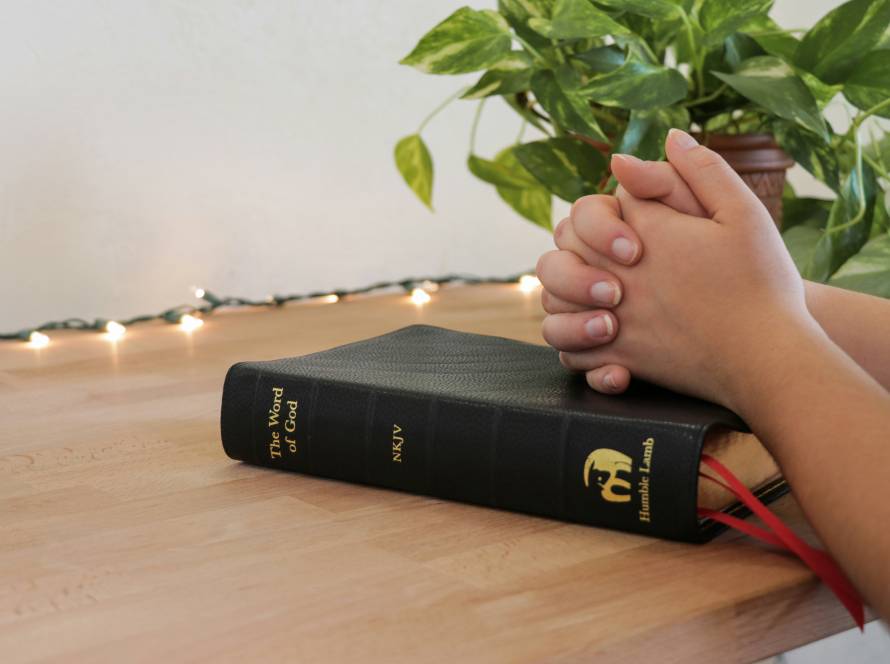Prayer is a universal act. Whether people realize it or not, everyone prays in one way or another. Prayer is essentially a cry for help. It is a reaching out beyond oneself and that’s something every human does. Even those who don’t believe in God often look to something higher: fate, the universe, or some greater force they hope will intervene on their behalf.

Many people, including atheists, direct their hopes and desires to something—though it may not be God. But here’s the irony: when people place their trust in anything other than God, they are appealing to something lesser, not greater. According to Scripture, God made humanity just a little lower than Himself—Elohim (Ps 8: 5). So, when people pray to the universe or other impersonal forces, they are actually placing their faith in something beneath the status God gave them. The universe isn’t God; it’s a creation meant to serve His purposes. Depending on it instead of the Creator is both unwise and ineffective.
Everyone prays in one way or another.
What’s even more surprising is how many Christians don’t realize the incredible privilege they have in prayer. As believers, we don’t just cry out to some distant deity—we pray to our Father, the sovereign God who made the heavens and the earth.
And yet, many approach prayer as though God were far away. They plead, repeat, and beg—not because God is unkind, but because they don’t see Him as a loving Father who cares deeply for them.
“So, when people pray to the universe or other impersonal forces, they are actually placing their faith in something beneath the status God gave them.”
Jesus didn’t teach us to approach God as strangers or beggars. He taught us to say: “Our Father in heaven” (Mt 6: 9)
When we understand this relationship, prayer becomes less about performance and more about connection.
Sadly, even many Christians haven’t grasped the incredible privilege they have: to talk to God the Father—the One who rules over everything. Too often, believers approach prayer as if God were distant or uninterested in their needs. They plead and beg, not because God is uncaring, but because they haven’t yet understood His heart as a loving Father. When we truly know Him as our Father, prayer becomes a conversation, not a performance.

Moreover, effective prayer is directed to the Father, in the name of Jesus. But what does it really mean to pray in Jesus’ name? It’s not just a phrase we tag on at the end of a prayer. Saying “in Jesus’ name” isn’t a magic formula or spiritual stamp of approval. To pray in Jesus’ name means to pray in alignment with His will, His nature, and His mission. It means asking for things He would stand behind—requests that reflect His character and purpose.
“As believers, we don’t just cry out to some distant deity—we pray to our Father, the sovereign God who made the heavens and the earth.”
If we ask for something Jesus wouldn’t endorse, even if we end the prayer with “in Jesus’ name,” it doesn’t carry His authority. That’s why we need to pray prayers that Jesus can truly put His name on.
So, if our prayers are selfish, misaligned with His values, or disconnected from His purpose, simply saying “in Jesus’ name” at the end won’t make them effective.
Thankfully, we’re not left to figure this out alone. The Holy Spirit is given to help us pray according to God’s will. One of the Spirit’s roles is to glorify Jesus, which means He won’t support prayers that don’t bring glory to Christ. If our requests don’t reflect Jesus’ heart, they’re not aligned with God’s will—and the Spirit won’t endorse them.
To pray in Jesus’ name means to pray in alignment with His will, His nature, and His mission. It means asking for things He would stand behind—requests that reflect His character and purpose.
That’s why we need the Holy Spirit’s help in prayer: to reveal what God wants and to guide us in speaking those things back to Him. When we pray this way—in the will of the Father, through the name of Jesus, and by the leading of the Holy Spirit—our prayers become powerful, effective, and aligned with heaven.
For further reflection, please meditate on the following…
- What does my prayer life say about how I view God’s nearness and care?
- Would Jesus confidently put His name on my prayers?
- Am I making space for the Holy Spirit to guide my prayers?
- What do I usually pray about? Are my prayers mostly about my comfort?
- How would my approach to prayer change if I truly believed God hears and responds?

